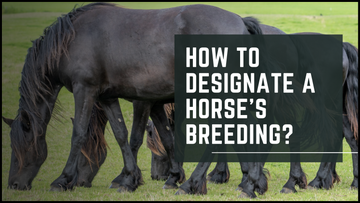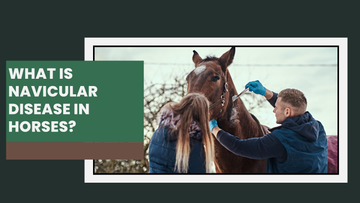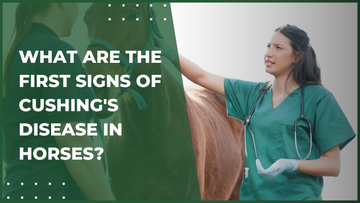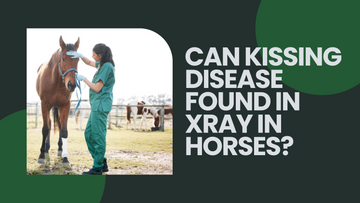Horses are creatures of habit and feed on immense energy. They can often be seen standing tall, grazing, or roaming their surrounding area while being calm. Their inclination to remain upright is not just a quirk but a survival trait. This has been honed over centuries to keep them alert and ready to respond to natural threats.
Do horses lay down? As horses age, their bodies naturally undergo multiple changes eventually leading to horse lying down. Their routines shift to accommodate these additional needs. A little more downtime can be part of this process, but extended periods of lying down can be tied to a lot more horse health problems.
Environmental factors should not be overlooked either when considering about my old horse is lying down more than usual. A hot summer day might push your horse to rush in the shade more often, while an uncomfortable or poorly maintained resting area can accelerate their need to lie down. However, the key here lies in knowing between harmless relaxation and potential warning signs.
Why Does an Old Horse Lie Down More?
Should horses lay down? Yes, to recover their energy and be ready for their next adventure. When my old horse is lying down more than usual, it could be a sign of an underlying horse health issue or an environmental factor that needs immediate attention when horse lying on its side.
do horses lay down? Common health issues could be pain or regular discomfort if you think my old horse is lying down more than usual. Arthritis can cause joint stiffness and reluctance to move or laminitis, a painful inflammation of the hoof, which is often caused by various metabolic issues or a poor diet. Both of these health conditions can make even simple movements very uncomfortable. This can lead to lying down horse or horse lying on its side behavior becoming more frequent.
Gastrointestinal problems can also be an issue that you might be undercutting for your horse laying down alot. Colic, which can be the major cause of horse lying down, encompasses a wide range of digestive issues, forcing lying down horse. They can start to roll or refuse to eat their daily meal, in case of gas buildup or severe blockages. What would cause horse to lie down after eating is often related to such digestive discomfort. Sand colic is another problem that unfortunately happens when the horse ingests sand or dirt. This can irritate the digestive system and can cause discomfort, which can make them lie down suddenly, giving signs that they are suffering from something.
Neurological conditions can also be to blame for the strange behavior of your horse, making horse lying down a lot more frequently. Equine Protozoal Myeloencephalitis (EPM) is a parasitic infection that affects the nervous system of the horse and can cause weakness and poor coordination. Viral diseases like equine encephalitis can also cause weakness and lying down with different symptoms like fever or seizures.
Horses that feel safe in their environment, especially in herds with established hierarchies, will lie down more for proper rest. Heat stress during hot weather can also cause exhaustion, leading old horses to rest more than usual to cope horse lying on its side.

Why Should horses lay down? Key Symptoms to Watch for Your Older Horse:
A lot more care should be taken if we talk about do horses lay down. Noticing changes in their usual behavior can be the key to preventing health issues early on. If your horse is lying down more than usual, then it becomes very important to keep an eye out for certain signs that could indicate underlying discomfort or illness of lying down horse. Here are some key symptoms, which you should watch out for when your horse laying down alot:

-
Reluctance to Stand:
If your horse seems reluctant to stand for longer periods, there could be pain or discomfort behind this behavior. If this behavior is accompanied by stiffness or limping, this could point out to arthritis, or severe joint pain. Is it ok if a horse lies down to sleep? When we talk about sleeping old horse behavior, this becomes a common pattern, and standing for them can become way more challenging, eventually leading to horse laying down alot.
-
Signs of Horse Abdominal Pain:
If your horse seems to be looking frequently at its sides, or kicking its belly, these can be said to be some of the most classic signs of colic for sleeping old horse. In case you are not aware of this term, this refers to gastrointestinal distress, which can affect gut health for horses and can vary from mild discomfort to severe. and it can vary from mild discomfort to severe. This can later lead to some of the most life-threatening conditions for your el Caballo. In these types of unfortunate cases, immediate veterinary attention becomes crucial for horses and mental health together.
-
Changes in Horse Appetite:
Your horse feeling pain can stop his feeding routine, become more lethargic, or even show signs of depression. The change in the diet of your friend can be subtle to notice but becomes important not to miss, being important for the gut health for horses. They can also portray this by horses lay down to sleep at unusual time.
Preventative Care for Senior Horses:
As horses age, their needs start to evolve. Here is how you can ensure that old horses to thrive in their golden years:

-
Routine Vet Check-Ups:
Regular veterinary visits are always essential for the early detection of many horse health problems. Vets generally focus on dental health and checking for any signs of arthritis and other metabolic conditions like Cushing’s disease.
-
Horse Nutrition and Joint Health:
Feeding your senior horse is not just about throwing some hay and hoping for their best health. Specialized senior feeds, packed with fiber and other essential nutrients can be game-changers. Try keeping an eye on their weight, as too much can stress their joints, and too little can be a hint at something more serious.
-
Creating the Right Environment For Old Horses:
Old horses deserves a perfect retirement setup, which should be at least as comfortable as your favorite chair for horses lay down to sleep easily. Try making sure that your horse is well protected from the extreme weather conditions, and keeping the turnout areas safe and slip-free.
Conclusion
Taking proper care of your older horse is not just about giving them a cozy stall and a bunch of hay. It is just more about creating a retirement plan perfect for your old best friend. As the horses do get old, they need more than just a sunny spot to nap in. You will have to hone your observation skills to provide your horse with extra love when it feels down, careful attention, and some sharp observation skills to spot any underlying health issues related to horses and mental health.
You will be the only one who will ensure that they have comfort, joy, and a proper feeding schedule at the end of the day. Because when you have got a friend who has always been there for you, the least you can do here is make their golden years shine brighter.
Do you want to get well-informed and know the best tips to care for your horse? Do not hesitate to visit The Epic Animal, as they not only provide expert guidance but also offer premium horse products.

FAQs:
-
How old can a horse get?
-
Do senior horses lay down more?
-
What are the symptoms of old age in horses?
-
What if my horse is lying down but not rolling?
-
What is considered very old for a horse?
Horses over 20 years old are considered senior, and those beyond 25 years are generally considered very old, with special care needed for their health and well-being.
Read More Blogs:

How Long Can a Horse Go without Water?







